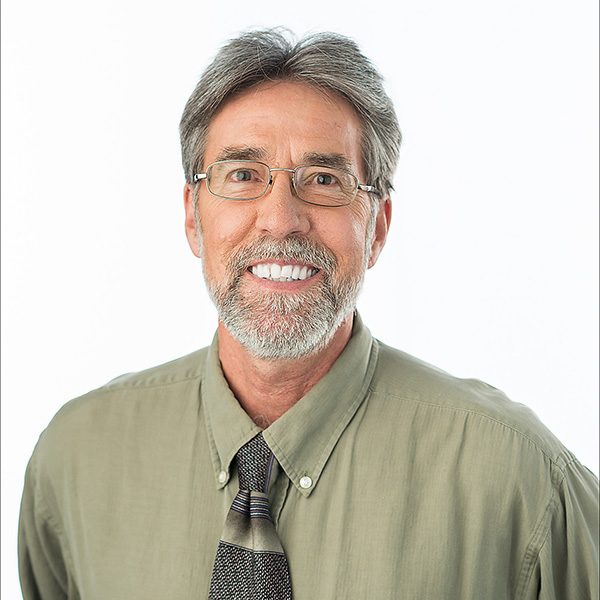ASU professor to receive Arizona Humanities’ Public Scholar Award

Image courtesy of AZ Humanities
Arizona State University alumnus Dan Shilling was the executive director of Arizona Humanities for nearly 20 years and has since gone on to teach three National Endowment for the Humanities summer institutes.
He left such a legacy behind that not only did ASU present him with the Distinguished Alumnus Award, but Arizona Humanities named their Public Scholar Award after him.
This year, the Dan Shilling Public Scholar Award recipient is Paul Hirt, a professor of history in the School of Historical, Philosophical and Religious Studies and senior sustainability scholar in the Julie Ann Wrigley Global Institute of Sustainability.
“Professor Hirt is without question a talented scholar,” said Brenda Thomson, executive director of Arizona Humanities. “What makes him stand out is the passion that he has for the humanities and his willingness to share. Paul cares about the land, the animals, the water and the people who live here. When you hear him speak, you come away with a sense that all of these things are connected and that protecting these things matters.”
Hirt has spent the last three decades as a public historian of the American West and has contributed to environmental history, environmental policy and sustainability studies. He has been a pioneer in environmental humanities as he explores topics including public lands, grassroots advocacy, conservation, water rights, clean energy and more.
“On the occasion of the approach of his retirement from ASU, and in celebration of his untiring efforts to render the humanities compelling for the people of the state, it seems altogether fitting to recognize Professor Hirt’s outstanding and exemplary career,” said Richard Amesbury, director of the the School of Historical, Philosophical and Religious Studies.
Hirt grew up going to the Blue Ridge Mountains in North Carolina every summer. While he explored the mountains, he read every book about wild edible plants and medicinal plants he could get his hands on. He later moved to Tucson, Arizona, to pursue his degrees and got involved in environmental activism.
“Mostly related to public lands, forest management, wildlife protection, wilderness designations and stuff,” Hirt said. “After doing that for about six or eight years, I decided to go back to school and get a PhD because I always wanted to be a teacher and earn a PhD so I could become a college professor.”
As a public historian, Hirt works diligently to bring his research to the community. Not only has he written two monographs, book chapters, peer-reviewed articles and edited two books, he is constantly involved in public talks about water resources, renewable energy, electric vehicles and more across the state. He speaks to civic organizations, student groups, retirement communities and the Navajo Nation.
Professor of history and senior sustainability scholar Paul Hirt.
“If we're not also translating what we do in ways that are meaningful to people in the world, they can begin to question why universities are even relevant,” Hirt said. “I’ve always felt that it’s important to bridge the academic world with the public and with policy makers.”
Hirt led and continues to lead multiple public history and history education projects for the people of Arizona. He has served as project administrator for a four-year grant from the U.S. Information Agency and U.S. State Department and for a three-year grant from the U.S. State Department.
Hirt has also received four grants and funding opportunities from the National Endowment for the Humanities for summer institutes, program implementation and to produce an interactive website. His efforts with the National Endowment for the Humanities produced a mobile application for exploring the borderlands, a traveling exhibit as well as public lectures and programs.
“Paul Hirt is a model for how to be a public intellectual,” said Jeffrey Cohen, dean of humanities. “He combines important environmental humanities research with wide outreach to ensure its impact as well as activism around the ecological concerns that impassion him.”
Beginning in 2016, Hirt and a team of collaborators at ASU were awarded a five-year grant for the U.S. Bureau of Reclamation administrative history of the Glen Canyon Dam Adaptive Management Program. It was also during this year that Hirt was elected to the board of directors of Salt River Project and became the state scholar for the Water/Ways exhibit, a travelling exhibit that is a partnership between the Smithsonian Institution, Arizona Humanities and ASU.
In 2017, Hirt joined the steering committee for the Sesquicentennial Colorado River Exploring Expedition, which commemorated the 150th anniversary of John Wesley Powell’s first trip down the Green and Colorado Rivers in 1869. Along with rafting down the rivers with other researchers, he wrote an essay, organized a public talk and a final celebration symposium for the project.
“I thought for a long time that being in a teaching career would be a good thing to do because it would give me an opportunity to constantly be learning and to share what I learn with other people and to try to instill in them the same commitment to be informed and engaged to try and make the world a better place,” Hirt said.
The award comes at the perfect time to reflect on all of Hirt’s research and contributions to the community as he prepares for retirement at the end of this school year. Upon his farewell from teaching at ASU, Hirt plans to take six months off to travel the Southern Hemisphere with his wife, but plans to continue his public works when he returns.
“I want to continue that work of advancing that clean energy revolution,” Hirt said. “I think (climate change) is the greatest global challenge that we are going to face for the next couple of decades and the most important thing that we can do to combat climate change is to transform our energy system from one based on fossil fuels to one based on renewable energy.”
A ceremony to celebrate Hirt and other Arizona Humanities award recipients will take place on April 5.
When asked what it meant to earn the Dan Shilling Public Humanities award Hirt said, “I’m very gratified that an august organization like Arizona Humanities, of all the public scholars out there doing good work, the fact that they chose me, to me, underscores the importance of the work that I’m trying to do and tells me that it’s appreciated even when I find it to be time consuming and sometimes frustrating.”
More Environment and sustainability

ASU researchers test environmental risks of tire emissions on Arizona highways
The Greater Phoenix area’s roadway grid system is the envy of urban planners everywhere, and the Arizona…

A 6-month road repair that only takes 10 days, at a fraction of the cost? It's reality, thanks to ASU concrete research
While Arizona’s infrastructure may be younger than its East Coast counterparts, the effects of aging in a desert climate have…

Mapping DNA of over 1 million species could lead to new medicines, other solutions to human problems
Valuable secrets await discovery in the DNA of Earth’s millions of species, most of them only sketchily understood. Waiting to be…


